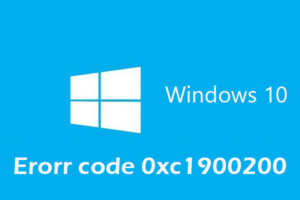-
Table of Contents
“Act now: Windows 11 support ending soon, stay updated with Microsoft.”
Microsoft has issued a warning to users that the current version of Windows 11 is approaching the end of its support.
Understanding the Implications of Windows 11 Support Ending
Microsoft recently issued a warning to users of Windows 11, informing them that the current version of the operating system is running out of support soon. This announcement has left many users wondering about the implications of this support ending and what it means for their devices.
When Microsoft ends support for a particular version of Windows, it means that they will no longer provide updates, security patches, or technical assistance for that version. This can have significant implications for users, as it leaves their devices vulnerable to security threats and may result in compatibility issues with newer software and hardware.
One of the most critical implications of Windows 11 support ending is the increased risk of security breaches. Without regular updates and security patches, users are more susceptible to malware, viruses, and other cyber threats. Hackers often target outdated operating systems, as they are more likely to have vulnerabilities that can be exploited. Therefore, it is crucial for users to understand the importance of keeping their operating system up to date and to take appropriate measures to protect their devices.
Another implication of Windows 11 support ending is the potential for compatibility issues with newer software and hardware. As technology advances, software developers and hardware manufacturers often optimize their products for the latest operating systems. When support for an older version of Windows ends, users may find that certain applications or devices no longer work correctly or are not compatible at all. This can be particularly problematic for businesses and organizations that rely on specific software or hardware to carry out their operations.
Furthermore, the end of support for Windows 11 may also mean that users will no longer receive technical assistance from Microsoft. This can be frustrating for individuals who encounter issues or need help troubleshooting problems with their devices. While there are alternative sources of technical support available, such as online forums and third-party service providers, the absence of official support from Microsoft can make it more challenging to resolve issues effectively.
To mitigate the implications of Windows 11 support ending, Microsoft recommends that users upgrade to the latest version of the operating system. By doing so, users can ensure that they continue to receive updates, security patches, and technical assistance from Microsoft. Additionally, upgrading to the latest version of Windows can provide users with access to new features and improvements that enhance their overall computing experience.
In conclusion, the warning from Microsoft regarding the impending end of support for Windows 11 has significant implications for users. It highlights the increased risk of security breaches, potential compatibility issues with software and hardware, and the absence of official technical assistance. To address these implications, Microsoft advises users to upgrade to the latest version of the operating system. By doing so, users can protect their devices, maintain compatibility with newer software and hardware, and continue to receive support from Microsoft. It is essential for users to understand the implications of Windows 11 support ending and take appropriate action to ensure the security and functionality of their devices.
Preparing for the Transition: Alternatives to Windows 11
Microsoft recently issued a warning to its users that a specific version of Windows 11 is running out of support soon. This news has left many users wondering what their options are and how they can prepare for the transition. In this article, we will explore some alternatives to Windows 11 and discuss how users can make a smooth switch to a supported operating system.
One alternative to Windows 11 is to upgrade to the latest version of Windows 10. Microsoft has stated that Windows 10 will continue to receive support until 2025, giving users ample time to transition. Upgrading to Windows 10 will ensure that users can still receive security updates and bug fixes, keeping their systems protected and running smoothly. Additionally, Windows 10 offers a familiar interface and a wide range of compatibility with software and hardware, making it a viable option for those who are hesitant to switch to a new operating system.
Another alternative to Windows 11 is to explore other operating systems such as macOS or Linux. macOS, developed by Apple, offers a seamless integration with Apple devices and a user-friendly interface. While it may require users to invest in new hardware, macOS provides a stable and secure environment for users to work in. Linux, on the other hand, is an open-source operating system that offers a high level of customization and flexibility. It is known for its stability and security, making it a popular choice among tech enthusiasts and developers.
For users who rely heavily on Microsoft Office applications, another alternative is to switch to Office Online or Google Workspace. Both of these cloud-based productivity suites offer a range of applications such as word processing, spreadsheets, and presentation tools. They can be accessed from any device with an internet connection, making them convenient for users who work on multiple devices or need to collaborate with others remotely. While they may not have the same level of functionality as the desktop versions of Microsoft Office, they provide a cost-effective solution for users who want to continue using familiar productivity tools.
In order to make a smooth transition to an alternative operating system or productivity suite, it is important for users to plan ahead and take certain steps. First, users should back up their important files and data to ensure that nothing is lost during the transition. This can be done by saving files to an external hard drive or using cloud storage services. Next, users should research and familiarize themselves with the new operating system or productivity suite they plan to switch to. This may involve learning new features and workflows, but it will ultimately help users make the most of their new software.
In conclusion, Microsoft’s warning about the upcoming end of support for a specific version of Windows 11 has prompted users to consider alternatives. Upgrading to the latest version of Windows 10, exploring other operating systems like macOS or Linux, or switching to cloud-based productivity suites like Office Online or Google Workspace are all viable options. By planning ahead and taking the necessary steps, users can make a smooth transition to a supported operating system or productivity suite and continue to work efficiently and securely.
Maximizing Security: Steps to Take Before Windows 11 Support Expires
Microsoft warns users that this Windows 11 version is running out of support soon. As the expiration date approaches, it is crucial for users to take steps to maximize the security of their systems. In this article, we will discuss the necessary measures that users should consider before Windows 11 support expires.
First and foremost, it is essential to ensure that your operating system is up to date. Microsoft regularly releases updates and patches to address security vulnerabilities and improve system performance. By keeping your Windows 11 updated, you can benefit from the latest security features and protect your system from potential threats.
In addition to updating your operating system, it is crucial to keep all your software and applications up to date as well. Outdated software can be a significant security risk, as hackers often target vulnerabilities in older versions. By regularly updating your software, you can ensure that you have the latest security patches and bug fixes, reducing the risk of a potential breach.
Another important step to take before Windows 11 support expires is to review and strengthen your passwords. Weak passwords are one of the most common ways that hackers gain unauthorized access to systems. It is recommended to use a combination of uppercase and lowercase letters, numbers, and special characters in your passwords. Additionally, consider using a password manager to generate and store complex passwords securely.
Furthermore, enabling two-factor authentication (2FA) adds an extra layer of security to your accounts. With 2FA, you will need to provide a second form of verification, such as a code sent to your mobile device, in addition to your password. This significantly reduces the risk of unauthorized access, even if your password is compromised.
Regularly backing up your data is another crucial step to take before Windows 11 support expires. Backing up your files ensures that you have a copy of your important data in case of a system failure or a security breach. Consider using cloud storage services or external hard drives to store your backups securely. It is recommended to schedule regular automatic backups to ensure that your data is always up to date.
Moreover, it is essential to be cautious when browsing the internet and downloading files. Malicious websites and downloads can pose a significant threat to your system’s security. Be sure to only visit trusted websites and download files from reputable sources. Additionally, consider using a reliable antivirus software to scan and protect your system from potential threats.
Lastly, consider upgrading to a supported operating system if your current device is not compatible with Windows 11. While Windows 11 offers enhanced security features, it is crucial to have a supported operating system to receive regular updates and patches. Upgrading to a supported version will ensure that your system remains secure and protected.
In conclusion, as Windows 11 support approaches its expiration date, it is crucial for users to take steps to maximize the security of their systems. Updating your operating system and software, strengthening your passwords, enabling two-factor authentication, regularly backing up your data, being cautious when browsing the internet, and considering upgrading to a supported operating system are all essential measures to consider. By following these steps, users can ensure that their systems remain secure even after Windows 11 support expires.
Exploring the Future: What’s Next for Windows Users After Support Ends
Microsoft warns users that this Windows 11 version is running out of support soon. As the technology landscape continues to evolve, it is crucial for users to stay informed about the future of their operating systems. With the impending end of support for Windows 11, users are left wondering what lies ahead. In this article, we will explore the future of Windows users after support ends, shedding light on the options available and the potential implications.
First and foremost, it is important to understand the significance of support ending for an operating system. When a software reaches the end of its support lifecycle, it means that Microsoft will no longer provide security updates, bug fixes, or technical support for that particular version. This can leave users vulnerable to security threats and compatibility issues, making it imperative to consider the next steps.
One option for Windows users after support ends is to upgrade to a newer version of the operating system. Microsoft typically releases new versions of Windows periodically, each with enhanced features, improved security measures, and extended support lifecycles. Upgrading to a newer version ensures that users can continue to receive updates and support from Microsoft, keeping their systems secure and up to date.
However, upgrading to a newer version of Windows may not be feasible for all users. Some older hardware may not meet the system requirements of the latest Windows versions, making it difficult or even impossible to upgrade. In such cases, users may need to consider alternative options.
One alternative is to switch to a different operating system altogether. There are several options available, such as Linux or macOS, each with its own set of advantages and disadvantages. Linux, for example, is known for its flexibility, customization options, and robust security. On the other hand, macOS offers a seamless integration with Apple devices and a user-friendly interface. Switching to a different operating system requires careful consideration of individual needs and preferences.
Another option for Windows users after support ends is to continue using the unsupported version. While this may seem like a viable solution, it comes with significant risks. Without security updates, users are more susceptible to malware, viruses, and other cyber threats. Additionally, unsupported versions may not be compatible with newer software and applications, limiting the user’s ability to take advantage of the latest technology.
In conclusion, the end of support for Windows 11 raises important questions for users about the future of their operating systems. Upgrading to a newer version of Windows is a recommended option for those who meet the system requirements. However, for users with older hardware, switching to a different operating system or continuing to use the unsupported version may be necessary. Regardless of the chosen path, it is crucial for users to prioritize security and stay informed about the evolving technology landscape. By making informed decisions, Windows users can navigate the future with confidence and ensure the longevity and security of their systems.
Q&A
1. What is the Windows 11 version that Microsoft is warning users about?
Microsoft is warning users about a specific version of Windows 11.
2. What does it mean when Microsoft says a Windows 11 version is running out of support soon?
When Microsoft says a Windows 11 version is running out of support soon, it means that the company will no longer provide updates, security patches, or technical assistance for that particular version.
3. Why is Microsoft warning users about this Windows 11 version?
Microsoft is warning users about this Windows 11 version to ensure that they are aware of the upcoming end of support and can take necessary actions, such as upgrading to a supported version, to maintain the security and functionality of their operating system.
4. What should users do if they are using the Windows 11 version that is running out of support soon?
Users who are using the Windows 11 version that is running out of support soon should consider upgrading to a supported version of Windows 11 or exploring other options to ensure they have access to updates, security patches, and technical assistance from Microsoft.In conclusion, Microsoft has issued a warning to users that the current version of Windows 11 is approaching the end of its support.







![[Solved]: “Error Code 0xC004F050” in Windows 11 in No Time](https://www.tipsbin.net/wp-content/uploads/2023/08/8e64f519d2390bfc001a41744be2cbd4-300x199.jpeg)

